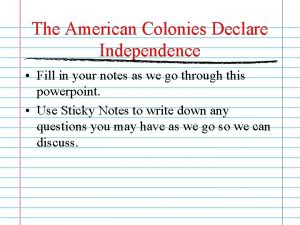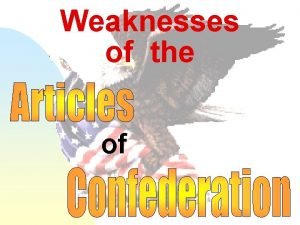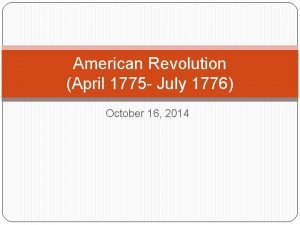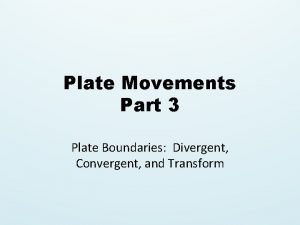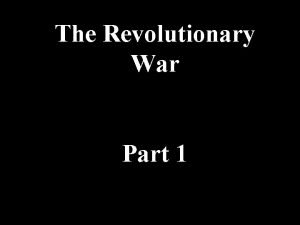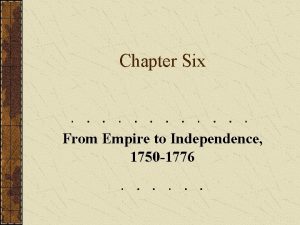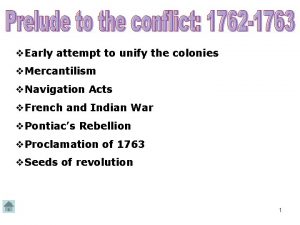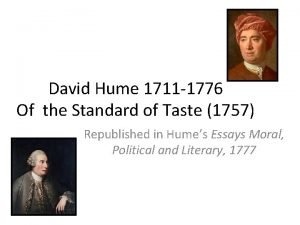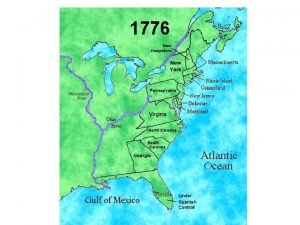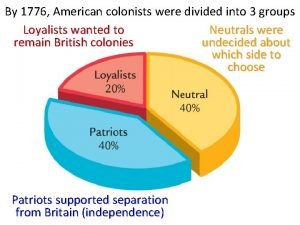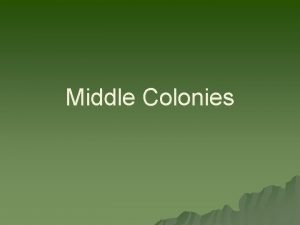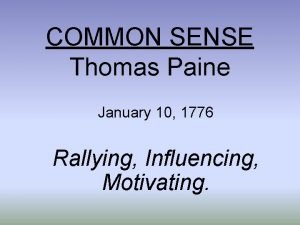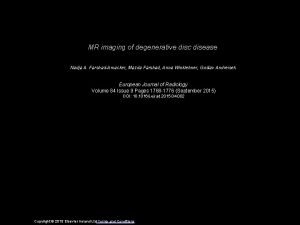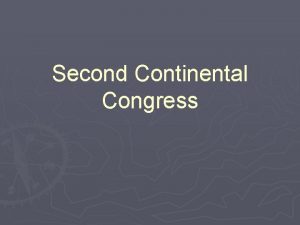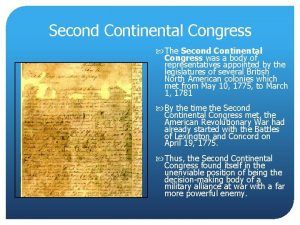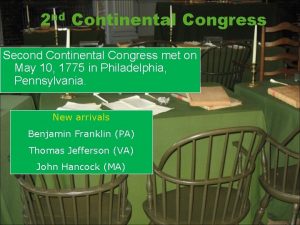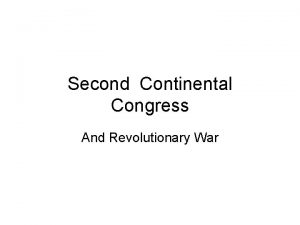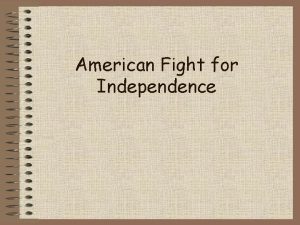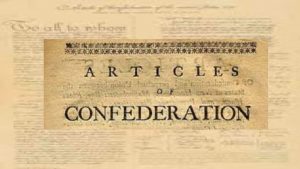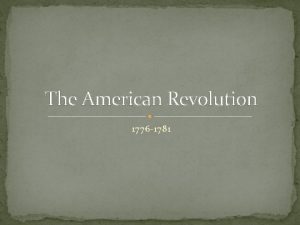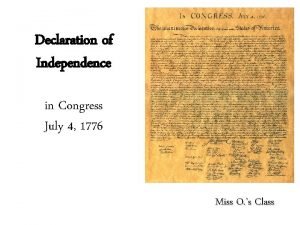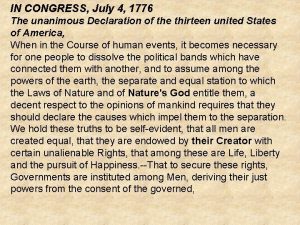July 2 1776 the Second Continental Congress voted
















- Slides: 16


• July 2, 1776, the Second Continental Congress voted in favor of Independence

• Reasons for Independence: (114) – Many colonists favored independence for TWO reasons: 1. The colonists believed that the British government had violated their rights as British subjects 2. Some of their fellow colonists had already died defending these rights

• Reasons for Independence: (114) – Patrick Henry and Thomas Paine emerged as powerful supporters of Independence – Thomas Paine wrote a pamphlet called Common Sense, which stirred up public support for the Revolution and called for the end of Britain’s rule of the colonies • Common Sense sold 120, 000 copies in three months and helped transform a disorganized colonial rebellion into a focused movement for Independence

• The Declaration of Independence: (115) – The Second Continental Congress appointed a fiveperson committee to draft the Declaration of Independence • Virginia lawyer and planter, and slaveholder, Thomas Jefferson, became chair of the committee and did most of the actual writing of the Declaration of Independence

• The Declaration of Independence: (115) – July 4, 1776, the Second Continental Congress adopted the Declaration of Independence • The Declaration of Independence’s immediate purpose was to win support for Independence here and abroad • The Declaration detailed the misdeeds of King George III toward the colonists

• Reactions to Independence: (116 -117) – Declaration of Independence inspired mixed reactions throughout the colonies • Many Patriots rejoiced wildly • Loyalists (Tories): opposed the Declaration of Independence; they based their loyalty to Britain on the long-held belief that to resist the King was to rebel against God • Also, the Loyalists were against Independence because if the colonies won they may lose their wealth

• Fighting the War: (117) • PROBLEMS: – Lack of a powerful central government made the American war effort difficult – The Second Continental Congress had no real authority. They could ask the states for help but could not force them to comply

• THOSE WHO SERVED: (118 -119) – Patriot forces enjoyed TWO key advantages over the British 1. The colonists fought on familiar ground 2. The colonists were motivated by revolutionary zeal

• CONTINENTALS & REDCOATS: (118) • CONTINENTAL SOLDIERS – Most continental soldiers and state militiamen firmly embraced the goal of Independence – Most continental soldiers were: • • Under 23 years of age Owned little or no property Grew up on Farms Some were drafted and others served as paid replacements for draftees • Some enlisted to receive small cash bonuses and promises of free land after the war • They believed they were fighting for a “glorious cause. ”

• CONTINENTALS & REDCOATS: (118) • BRITISH SOLDIERS – British soldiers were young men from poor rural backgrounds – British soldiers were highly trained, well-supplied, and accustomed to military discipline

• AFRICAN AMERICANS & AMERICAN INDIANS: (118 -119) – AFRICAN AMERICANS: – George Washington initially said that black soldiers could not serve in the Continental Army because they feared slaves would revolt if given a gun – In 1775, the Governor of Virginia offered freedom to slaves who would leave their owners to fight in the war on the British side • In Response, the Continental Army began to enlist FREE African Americans

• AFRICAN AMERICANS & AMERICAN INDIANS: (118 -119) – AMERICAN INDIANS • American Indians played an important role in the War – The Native Americans knowledge of the land, made them valuable for both sides – In the beginning both the British and the Patriots tried to respect the Indians’ neutrality – Soon, however, the urgent need for skilled fighters led both sides to recruit Indian soldiers – Native Americans did fight for the British and the Patriots

• WOMEN – Patriot women served the revolutionary cause in important ways • Some fought in the war • Some were spies or messengers • Worked as cooks, laundresses, and nurses • Distributed medical supplies, making uniforms, and helping to manufacture bullets • While men at war some women tended to the farms to help keep the colonial economy going • DID THIS FOR PATRIOTS AND THE BRITISH

• Deborah Sampson Gannett of Massachusetts, for example, disguised herself as a man and became the “faithful and gallant soldier” Robert Shurtleff.

 What is the significance of july 4 1776 brainpop
What is the significance of july 4 1776 brainpop July 12 1776
July 12 1776 July 16 1776
July 16 1776 Continent continent convergent
Continent continent convergent Divergent convergent transform
Divergent convergent transform What was the goal of the first continental congress?
What was the goal of the first continental congress? First continental congress convenes
First continental congress convenes First continental congress definition
First continental congress definition The first continental congress
The first continental congress How mercantilism works
How mercantilism works David hume 1711 a 1776
David hume 1711 a 1776 1776-1607
1776-1607 1776 divided by 3
1776 divided by 3 Middle colonies timeline
Middle colonies timeline January 10th 1776
January 10th 1776 Ccc1776
Ccc1776 Nadja farshad
Nadja farshad
